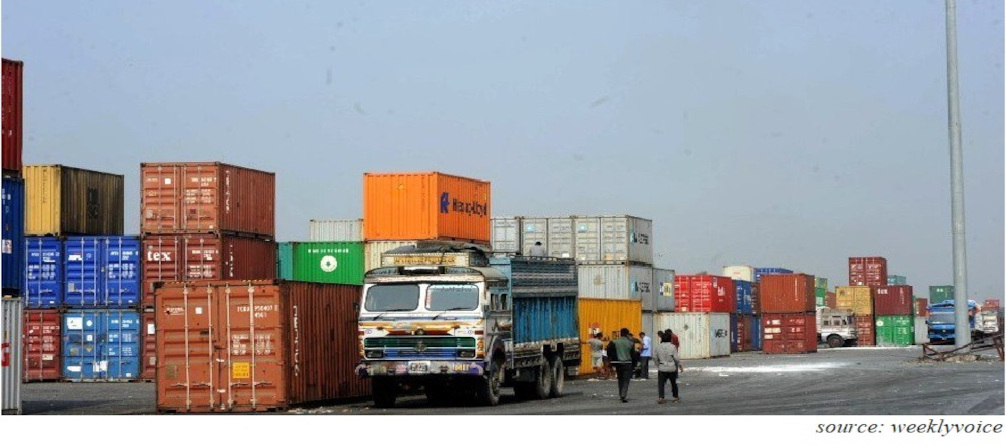07 April, 2024

The logistic service providers (LSPs) are an integral component of the supply chain. Acting mostly as intermediaries, they are responsible for the transport, storage and delivery of goods, ensuring that all of it is done in a cost and time effective manner. Nepal, as a landlocked developing country (LLDC), faces several challenges adapting to the evolving trade environment owing both to its geographical structure and the tenacious bottlenecks that exist within the supply chain networks. Post trade liberalization, Nepal sought to diversify its economic relations within the immediate region and beyond. The fact that it was a landlocked state further meant that it was dependent, and overtly so, on the transit agreements as well as the clarity of its own developmental policies to secure its economic interests in the rapidly globalizing world order. The role of LSPs within this was to ease the process of trade. However, in practice, this has been a hefty objective for the concerned actors and the overarching institutions to achieve. The report sought to broadly understand the apparent capacity gaps of the LSPs, paying heed to their overall role within the supply chain in Nepal, further emphasizing the institutional and infrastructural constraints that these entities face, lastly, providing some recommendations to address them.
Key Findings: Understanding the Challenges
Nepal has signed a number of agreements with its neighbors for transit purposes, and has attempted to bring policies to ensure that the movement of goods happen in an orderly fashion. The issue lies in the enaction of such policies and the timely revision of the documents, keeping in mind the changing dimensions of domestic, regional and global interests when looking at trade. The Multimodal Transportation of Goods Act of 2006 in this instance, requires a review within this consideration, as new endeavors like the BBIN (Bhutan-Bangladesh-India-Nepal) initiative gains a foothold in the greater public and political imaginings of enhancing regional connectivity, building prospects of integrated trade between the nations. Likewise, the new Trade Logistics Policy, 2022, would need a careful enactment keeping in mind the criticisms of experts regarding a clarity of country-specific concerns that need to be addressed. The laws that may build-up from such policies need a sense of precision, responding to the current trends within the trade and logistics sector. For the local LSPs, the concern also lies deeper in the basic institutional responses, and the lack of integration within them. As such, there is also a sense of trust deficit between such entities and the LSPs on the ground. A lack of understanding and fragmented information sharing between them has also been observed.
In a similar vein, the local LSPs are also more or less learning on the go. There is a lack of formal training and platforms for LSPs to engage and continuously build their understanding of the evolving field. Hence, sector-wise segregation of the roles and responsibilities within general standard processes and as per the global regulations and commitments are also lacking when gauging the functional scope of the actors within the trading and logistics sphere.
When looking at the infrastructural scope, Nepal ranked 114 out of 164 countries on the Logistics Performance Index of the World Bank in 2018, indicating that while the country had attempted to fill in some of the identified logistics gaps, it still has some way to go. The infrastructural challenges are also a limiting factor for the LSPs when calculating their functional capacities on the whole. Congestion along the traffic points, insufficient warehouse management, lack of storage facilities and labs at border points, the need for automation and incorporation of block chain systems, to name a few, all serve to limit the functional capacity of the LSPs.
Identified Pathways
Through the course of research, it has also been perceived that most local actors within the supply chain also require some form of specialized knowledge and guidance in a field that is constantly changing due to various factors, including technological advancements. A formal platform of association between private and public actors, including foreign entities within the logistics sector, for training and experience sharing may help the LSPs in this regard to optimize their performance. The report has, therefore, recognized the importance of:
i) reviewing and revising the relevant policy frameworks,
ii) building trust and communication between the concerned entities,
iii) automation of the logistics sector,
iv) ensuring formal trainings, providing up-to-date knowledge of the specialized and developing role of an LSP, the shifting dimensions of the logistics sector and the prospects that the change holds - improving one’s professional competencies, and accepting the principles of life-long learning,
v) building strong data sharing channels amongst the actors – All the while gauging the regional and global movements in the field.
For the full report please go to NITDB
Other Research Articles
Migration and Nepal’s Economy: The Paradox of Development
August 13, 2023
Presence of China and India in Africa: What it Entails?
May 25, 2021
Coronavirus and its Impact on World Trade
July 28, 2020
FDI post Covid-19
May 19, 2020